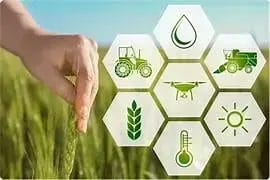Agriculture Company and Sustainability Practices Assessment: Paving the Way for a Greener Future
June 4, 2024 2024-06-04 10:24
Agriculture Company and Sustainability Practices Assessment: Paving the Way for a Greener Future
In recent years, the global agriculture industry has faced immense pressure to adopt sustainable practices. With climate change, resource depletion, and a growing population, the need for innovative and sustainable agricultural practices has never been more critical. This article explores the efforts of leading agricultural companies to implement sustainable practices and assesses their impact on the environment, economy, and society.
The Importance of Sustainable Agriculture
Sustainable agriculture aims to meet society’s food and textile needs without compromising the ability of future generations to meet their own needs. This involves a variety of practices designed to protect the environment, expand the Earth’s natural resource base, and maintain and improve soil fertility. Sustainable agriculture not only helps in conserving resources but also ensures food security, promotes economic stability, and fosters social equity.
Key Sustainability Practices in Agriculture
- Soil Health Management
- Cover Cropping: Planting cover crops like clover or rye during off-seasons to prevent soil erosion, improve soil health, and increase biodiversity.
- Crop Rotation: Growing different types of crops in the same area in sequential seasons to improve soil health and reduce pest and weed pressure.
- Water Conservation
- Drip Irrigation: Utilizing drip irrigation systems to deliver water directly to the plant roots, minimizing water waste and improving water use efficiency.
- Rainwater Harvesting: Collecting and storing rainwater for irrigation and other agricultural uses, reducing dependency on groundwater and other freshwater sources.
- Integrated Pest Management (IPM)
- Biological Controls: Using natural predators or parasites to control pest populations, reducing the need for chemical pesticides.
- Cultural Practices: Implementing crop rotation, intercropping, and other cultural practices to disrupt pest life cycles and reduce pest populations.
- Renewable Energy Use
- Solar and Wind Power: Installing solar panels and wind turbines on farms to generate renewable energy, reducing reliance on fossil fuels and lowering greenhouse gas emissions.
- Bioenergy: Converting agricultural waste into bioenergy, providing a sustainable energy source and reducing waste.
- Sustainable Livestock Management
- Grazing Management: Implementing rotational grazing systems to prevent overgrazing, improve pasture health, and enhance biodiversity.
- Feed Efficiency: Using high-quality feed and efficient feeding practices to reduce methane emissions from livestock and improve overall productivity
Agriculture Company and Sustainability Practices Assessment: Paving the Way for a Greener Future
June 4, 2024 2024-06-04 10:24Popular Tags






























